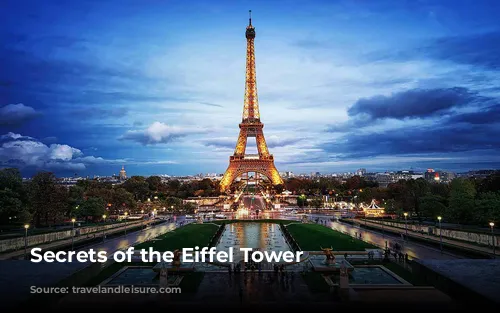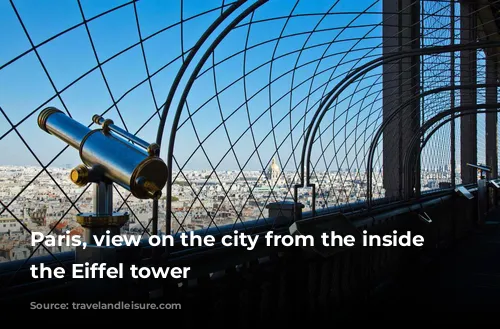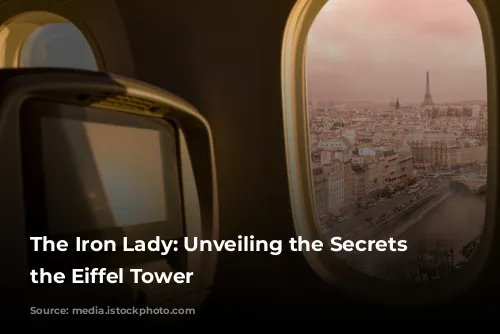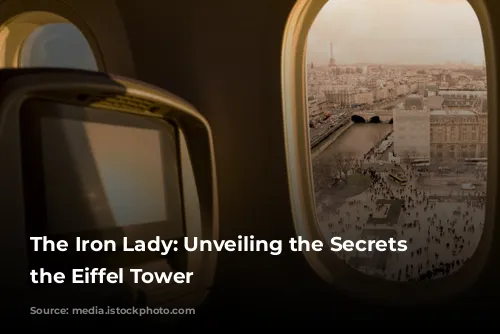The Eiffel Tower, a symbol of Parisian romance and ingenuity, has captivated the world since its debut at the 1889 World’s Fair. It was a bold statement of France’s modern industrial prowess, a testament to the nation’s advancements in engineering and design. The tower’s construction was a feat of speed and precision, taking just two years, two months, and five days to complete. This marvel of engineering, built with a staggering 7,300 tons of iron and 2.5 million rivets, drew more than two million visitors during the fair.
The Eiffel Tower isn’t just a magnificent structure; it’s a treasure trove of fascinating stories and little-known facts. Despite being visited by over 300 million people, this iconic landmark still holds secrets, waiting to be uncovered.

Beyond the Iron Framework
The Eiffel Tower’s design, a triumph of engineering, sparked controversy even before its completion. Renowned artists and intellectuals, including Guy de Maupassant and Alexandre Dumas, voiced their disapproval, comparing the structure to a “gigantic black factory chimney” that would overwhelm and humiliate Paris’s architectural heritage. Despite the protests, the Eiffel Tower defied its critics and became a symbol of enduring beauty and innovation.
Despite its fame, the tower’s design wasn’t solely the creation of Gustave Eiffel. Two engineers, Maurice Koechlin and Emile Nouguier, working for Eiffel’s company, played a pivotal role in conceptualizing the structure. The trio also collaborated with French architect Stephen Sauvestre to soften the tower’s originally harsh, utilitarian design, ultimately winning a contest against over 100 other proposals for the World’s Fair’s centerpiece.

An Unexpected History
The Eiffel Tower wasn’t always destined to grace the Parisian skyline. Originally intended to be a temporary structure, the tower was slated for demolition after 20 years. However, Eiffel’s innovative use of the tower as a radio antenna and wireless telegraph transmitter in 1910 secured its future. This demonstration of the tower’s practicality convinced the government to grant Eiffel a 70-year extension. The Eiffel Tower, by then, had become an iconic symbol of both Paris and France, its fate forever intertwined with the city’s identity.
The Eiffel Tower’s history is not without its brushes with tragedy. During World War II, the Nazi regime planned to destroy the tower, along with the rest of Paris. Fortunately, Allied troops intervened before the order could be carried out, sparing the city and its iconic landmark from destruction. Although the city faced subsequent air raids, the Eiffel Tower survived the war unscathed.

A Legacy of Innovation
The Eiffel Tower has been more than just a monument; it has served as a testament to human ingenuity and a platform for various endeavors. Its legacy extends beyond its grandeur and beauty.
Gustave Eiffel, a passionate scientist, transformed the third floor of the tower into a meteorology lab. Here, he conducted experiments in physics and aerodynamics, even building a wind tunnel at the base of the tower. This space became a hub for scientific research, offering opportunities for other scientists to conduct their own experiments.
In addition to its scientific legacy, the Eiffel Tower has housed several businesses. During the 1889 World’s Fair, the French newspaper Le Figaro occupied an office on the second floor, while the first floor housed a post office, a radio station, and a theater designed by Stephen Sauvestre. These diverse uses highlight the Eiffel Tower’s adaptability and its capacity to serve various purposes beyond its initial function.

A Symphony of Lights
The Eiffel Tower’s stunning light show, a modern spectacle that illuminates the Parisian night, has a rich history. The first light show, a dazzling display of 200,000 bulbs, debuted at the 1925 International Exhibition of Modern Decorative and Industrial Arts. While the tower itself is in the public domain, its illumination is protected by copyright. However, this stipulation only applies to professional photographers; tourists are free to capture the magical spectacle of the Eiffel Tower’s light display.

A Tale of Strength and Endurance
The Eiffel Tower, a marvel of engineering, is built to withstand the elements. The massive iron structure is remarkably wind-resistant, swaying gently during storms. The tower also expands due to the sun’s heat, growing a few centimeters during the summer months. This expansion, combined with the sun’s heat, causes the tower to lean slightly towards the sun.
The Eiffel Tower’s enduring legacy is also reflected in its meticulous maintenance. A team of 50 skilled painters regularly inspects the tower for corrosion, removing worn sections and applying layers of anti-rust primer and paint. This painstaking process, traditionally done by hand, ensures the tower’s continued beauty, battling the effects of pollution, bird droppings, and rust.
A Monument to the Power of Human Ingenuity
The Eiffel Tower stands as a testament to human creativity and the power of engineering. Its construction, a feat of speed and precision, revolutionized the world of civil engineering. It has also been a source of countless stories and little-known facts, further adding to its allure and mystique. The Eiffel Tower, a symbol of Parisian elegance and a testament to human ingenuity, continues to captivate the world, inspiring wonder and admiration in all who gaze upon its majestic silhouette.
